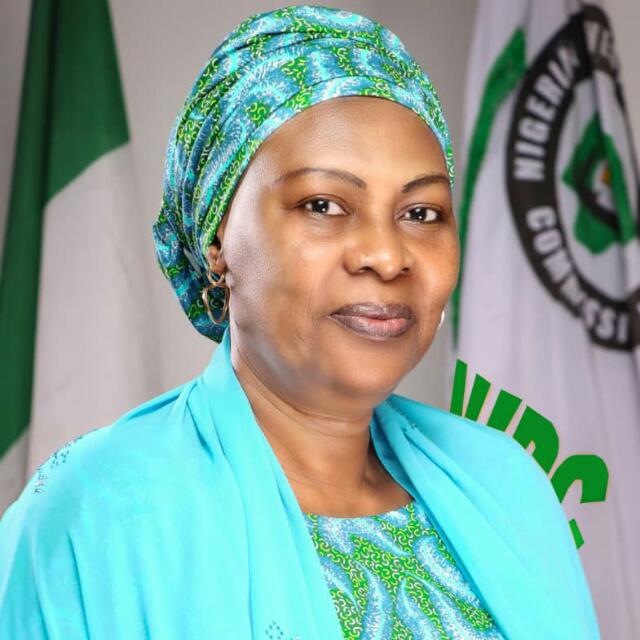
By Sunday Oyinloye
Going by the economic challenges the present administration in Nigeria has to contend with, characterized by declining GDP, huge indebtedness, serious inflationary pressure, high unemployment rate, multi-dimensional poverty level, in addition to the United Nations forecast that the country’s population will be about 400 million by the year 2050, the task of driving the economy by creating enabling environment for attraction and retention of massive domestic and foreign direct investment has become very urgent and inevitable
The new Administration has been applauded for designing and implementing a transformation agenda that is expected to give Nigeria a new lease of economic life; by reversing the drift and restoring Nigeria on the path of sustainable inclusive growth and development. The question to ask is what is the readiness level of relevant institutions of government to support the realization of the economic agenda of the Tinubu Administration?
In President Bola Ahmed Tinubu’s Inaugural Speech in May 2023, the Government of Nigeria reaffirmed its commitment to positioning the country as one of the world’s top 20 economies. A critical aspect of achieving this goal lies in the growth and enhancement of Nigeria’s private sector, supported by a conducive business environment. President Tinubu outlined his vision for economic transformation and emphasized specific priority areas for his administration.
Recognizing the importance of domestic and foreign investment, the government aims to focus on implementing practical measures involving incremental legislative, regulatory and policy reforms designed to remove all inhibitions undermining the flow of investment into the economy and for Nigeria to get full benefits of domestic and foreign investments thereby, tackling unemployment, rapid development of infrastructure, attract modern technology and generally foster economic growth.
While short-term measures are crucial, Tinubu stressed the significance of long-term commitments. These include developing a reliable network of transportation and power infrastructure across the country, improving security, ensuring a predictable and stable business environment providing advance notice of any regulatory changes, and addressing governance at the Federal, state, and local levels. Herein lies the critical role of the Nigerian Investment Promotion Commission (NIPC) as the agency of Government with statutory mandate of coordinating the inflow of Private capital into the economy. NIPC is also saddled with the responsibility of designing and implementing measures required to attract Investments including ensuring that the business environment is supportive of private sector growth, as well as advising Federal Government on measures that will improve Nigeria’s competitiveness as a preferred destination for Investments.
To demonstrate the readiness level of NIPC to support the implementation of measures outlined in the President’s Inaugural speech and subsequent announcement of policy measures on the development priorities of the Administration, NIPC being the principal agency of the government charged with the mandate to encourage, promote and coordinate investment in Nigeria recognizes the need to reposition and align its Investment promotion strategies with the transformation agenda of the Tinubu Administration.
To further demonstrate required political will to change the economic fortunes of Nigeria, the President had set up the Policy Advisory Council (PAC) to come up with an economic blueprint support the delivery of sustainable and inclusive economic growth. With the President’s determination to revamp and transform the nation’s economy, all eyes are on NIPC.
Considering the Administration’s emphasis on economic recovery is heavily dependent on attracting sustainable Foreign and Domestic Direct Investment, it then follows that the task ahead of NIPC is huge. It requires institutional strengthening, capacity up-scaling and alignment and repositioning for effectiveness. Last month, the President also inaugurated the National Economic Council (NEC), headed by Vice President, Kashim Shettima in accordance with the provisions of the Constitution of the Federal Republic of Nigeria, 1999, as amended; Section 153(1) and Paragraphs 18 & 19 of Part I of the Third Schedule.
He said the task of growing the nation’s economy is quite enormous and that there must be “no excuse for failure”.
According to investment experts, to make the new administration meet its target of economic transformation, there is need to properly prepare, equip and empower NIPC to frontally align its investment promotion strategies in line with the PAC Report and other priority programmes of the Federal Government.
It is in line with the evolving high expectations on NIPC that the management led by the Acting Executive Secretary/CEO; Hajja Gana Wakil moved to sharpen and deepen the skills and competences of the staff in readiness to take on the new challenges. The Commission has just concluded training and capacity building of staff, which was mainly conducted by a consortium of Investment promotion professionals and business climate reform experts. The intensive training programme took place at three locations in the country. The training has not only equipped the staff but also motivated them for the task ahead.
It was organised to further equip the NIPC staff with comprehensive knowledge and skills in investment facilitation, strategic planning, leadership, work-place communication strategies, understanding the changing behavior of FDI, building national consensus on Investment Climate Reforms, making FDI to work for the local economy and effective promotion of Nigeria’s investment landscape in a distressed global economy etc.
In addition to capacity building program, the Commission has reinvigorated certification of Investment promotion activities for greater professionalism and country-whole approach to Investment promotion and facilitation. According to Hajja Gana Wakil, “The certification as investment promotion professionals positions us as industry leaders and showcases our commitment to providing world-class services to investors. With our enhanced capabilities, we are ready and set to drive the current administration’s economic agenda, promoting Nigeria as a business-friendly environment and accelerating our nation’s economic growth.”
To further key into the economic vision of the President, the management has ensured better collaboration with other agencies and parastatals of the government that are involved in attracting investments to the country. The Commission has been engaging state governments, MDAs, organized private sector, diplomatic community and the media through its stakeholder’s engagement strategy to sensitize them in line with its coordinating mandate.
NIPC has a Country Focussed Investment Promotion Strategy aimed at attracting responsible, inclusive, balanced and sustainable (RIBS) investments in line with best practices and has been taking its campaign of Nigeria’s preparedness to receive investors to give comfort to High Net-worth Investors and Trans National Corporations on investing in Nigeria. This is by conveying in clear terms the present administration’s efforts at investment climate improvement and availability of abundant incentives in the country.
The Commission also listed competitive advantages Nigeria has which is greatly enhanced by the new Administration’s political will and courage to push through far-reaching reforms in the Investment climate to the applause of the investing community.
NIPC early this month, through its Acting Executive Secretary/CEO Hajja Gana Wakil delivered a compelling speech at the First Executive Meeting with the Nigerian Business Community in South Africa, all in the effort to make the diaspora key into the economic agenda of the present administration.
Also in the recent past, the Commission had Bilateral Investment Treaty negotiations with a visiting delegation from the Netherlands in addition to heading a Nigerian delegation to Hanoi, Vietnam to engage in crucial discussions on Investment Treaty Negotiations aimed at facilitating the seamless flow of balanced and sustainable investments between Nigeria and Vietnam. As the lead negotiator of the Federal Government, NIPC has been involved in negotiating Bilateral Investment Treaties, International Investment Agreements and Investment Promotion and Protection Agreements with several strategic countries.
In line with the present Administration’s drive towards improving the ease of doing business, NIPC has automated and is poised to fully digitalise the processes at the One-Stop Investment Centre (OSIC), which houses 27 regulatory agencies of the Federal Government by creating the Single Window Investors’ Portal (SWIP). This has created the Electronic OSIC (e-OSIC), other e-Governance measures introduced included; Electronic Pioneer Status Incentive application (e-PSI), investment opportunities profiling, stakeholder relationship management, the OSIC Lab and other measures aimed at improving its facilitation and after care services. These and other initiatives were conceived by the Commission to provide coordinated, streamlined, efficient, transparent and fast-tracked services to investors.
As part of NIPC’s strategic stake-holder engagements, the Commission has intensified its collaboration with State Governments. The NIPC in furtherance of its collaboration with the state governments to attract FDI into the country has developed the Book of States in partnership with the Nigeria Governor’s Forum. It also embarked on capacity building of the States to receive investors through the Nigeria Investment Certification Programme for States (NICPS). These and other activities are geared towards ensuring a nation-wide and whole-country approach to making Nigeria attractive and competitive.
The collaboration the Commission is having with Nigerians in Diaspora again aligns with the policy objectives of the new Administration and it is identified as key to the attraction of FDI to the country.
As the citizens are eager to see a rapid transformation in the economy, the strategic role of NIPC is brought to the fore and this is why all eyes are on the Commission to be one of the key drivers in achieving the “Renewed Hope” agenda of the President Bola Ahmed Tinubu- led administration.









